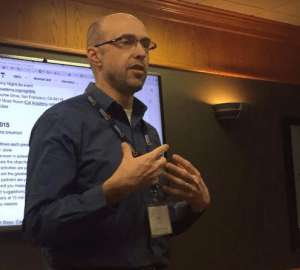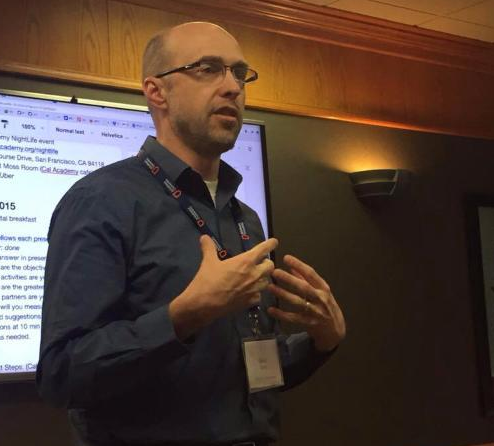BTN.com LiveBIG Staff, August 9, 2015
It?s a nearly universal experience for new college students - the ?sticker shock? from buying textbooks for their upcoming semester. (?I have to pay $75 for a used geology textbook? Are you kidding me!?!??)
But that reaction may be less prevalent in the future, thanks to the Open Textbook Library and a growing national network of institutions to support it.
 Spearheaded by David Ernst, chief information officer at the University of Minnesota?s College of Education and Human Development and director of the school?s Center for Open Education, the Open Textbook Library marries two phenomena of modern technology.
Spearheaded by David Ernst, chief information officer at the University of Minnesota?s College of Education and Human Development and director of the school?s Center for Open Education, the Open Textbook Library marries two phenomena of modern technology.
The first is digital media, particularly the kind people use on mobile devices like tablets and smartphones. The second is the open-source movement, which allows developers around the world to take computing code and adapt it - free of charge - for their own purposes.
Driven by a desire to make college more affordable for students, Ernst had a seed of the idea for the Open Textbook Library a few years ago, but found it wasn?t going to make enough of an impact at the time.
?We were looking at content as being electronic and exploring opportunities for greater affordability for students,? he said. ?But we initially realized that there weren?t a lot of savings to be had. Even though [textbooks] were digital, they were still expensive.?
But a random encounter with a professional colleague at a conference gave Ernst a light-bulb moment.
?She?d mentioned open textbooks, and the idea came back,? he said.
Ever since then, Ernst has worked to grow both the number of titles in the Open Textbook Library and participating institutions in the national Open Textbook Network, which helps get the materials distributed on campuses across the country. In the former, there are currently 186 titles and counting.
?Those are not books we?re creating,? he said. ?Open textbooks have been published for years. We?re just putting them in one place. We realized that faculty don?t know where to find these things. But they?re pretty aligned with open philosophy, and when they saw the books, they thought they were generally high quality.?
Both students and faculty can benefit greatly from open textbooks, Ernst explained. The students can save thousands of dollars on the cost of their education, and professors and instructors can easily customize the books to their lesson plans without worrying about infringing on copyrighted material.
?There?s really no downside to this whole thing,? he said.
Ernst also recently raised the profile of the Open Textbook Network with the first-ever conference for participants, held last week on the University of Minnesota?s Twin Cities campus. According to him, nearly every single institution within the network had representatives at the event, where they shared ideas and learned how to better educate faculty about these resources.
[btn-post-package]?The energy in the room has been incredible,? he said.
The network has doubled in size over the past three months, and Ernst said he expects to add a half-dozen new members this week in the wake of the conference.
?Things are exploding,? he added. ?I?m feeling like we can really help institutions help themselves.?
By Brian Summerfield







 Basketball is back! Find available live games on our B1G+ app via BigTenPlus.com.
Basketball is back! Find available live games on our B1G+ app via BigTenPlus.com. 